June 29, 2009
The Crime of Unlawful Flight in Arizona
What is the crime of Unlawful Flight in Arizona? In Arizona, Unlawful Flight is also known as and sometimes called ‘Felony Flight’. However, it is officially titled Unlawful Flight in the Arizona statutes and is a class 5 felony. (see Consequences of a Felony Conviction in this blog)
The crime of Unlawful Flight can be charged where the State can prove that the driver of a vehicle willfully fled from or attempted to elude a pursuing law enforcement vehicle. That law enforcement vehicle must meet the legal requirements of being appropriately marked and identifiable as an official law enforcement vehicle under Arizona law. Additionally the driver of the law enforcement vehicle must also take action to meet some additional requirements under Arizona law. This usually amounts to the driver turning on the red or blue lights and using an audible siren.
Many involved in law enforcement would define Unlawful Flight as being chased by a police car that has its lights and siren activated. As an Arizona State Prosecutor, I tried this crime many times and discovered that the statute in Arizona is not that simple. The fact that the State has elected to charge you with Unlawful Flight does not necessarily mean they can meet the all the requirements to prove it.
There are some elements that can be challenging for the State such as proving that the person charged was ‘willfully’ fleeing or attempting to elude. Arizona law enforcement now uses many different types of vehicles and the requirements of being appropriately marked, and the use of lights and siren are not always a given.
THE LAW OFFICE OF KARL A. MUELLER, PLC
Website: www.AzTrialLawyer.com
Call (602) 697-8761
Free 24 Hour Consultations
June 26, 2009
A Class 6 Undesignated Felony Offense
What is a class 6 undesignated felony offense? A class 6 undesignated felony offense, is also frequently referred to as a 6-open felony. In Arizona, at the time of sentencing for a class 6 felony offense a judge may leave the offense undesignated. This means that the offense has not yet been designated a felony conviction. In other words the felony designation is suspended or remains undetermined and may eventually be designated a misdemeanor as opposed to a felony. This is usually done to create an incentive to successfully complete a probationary term.
In lay terms it works like this: The State or court agrees to leave the offense undesignated. If you do everything you are supposed to do and successfully complete probation, the offense may be designated a misdemeanor thereby avoiding the serious consequences having of a felony conviction on your record. (see Consequences of a Felony Conviction in this blog) This creates a strong incentive to successfully complete probation and ‘earn’ a misdemeanor. The interests of the State are served because if the individual does not take advantage of this opportunity to prove themselves on probation, does not successfully complete probation, does poorly on probation, or commits another offense, the court may then designate the offense a felony.
A class 6 felony is the least serious category of felony in Arizona. Many times more serious or higher category felony offenses are reduced to class 6 felonies in order to ‘open them’ or leave them undesignated at the time of sentencing. For instance you may be charged with a class 4 felony offense, but offered a plea agreement to a class 6 undesignated felony.
In Arizona, the ability of the court to leave an offense undesignated is a valuable tool available to the court to create great incentive for probationers to do well on probation. It is also a last chance and valuable opportunity for those facing felony convictions to have the ability to prove to the court that they deserve to carry on with their lives without the burden being a felon.
THE LAW OFFICE OF KARL A. MUELLER, PLC
Website: www.AzTrialLawyer.com
Call (602) 697-8761
Free 24 Hour Consultations
June 23, 2009
Misdemeanors in Arizona
What is a misdemeanor? First of all it is important to understand that it is a crime subjecting you to criminal prosecution and a criminal record. Historically misdemeanors have been defined as a criminal offense which is punishable by a sentence of incarceration for not more than a year. In Arizona, you cannot receive more than six (6) months for a misdemeanor conviction.
Consequences of a Misdemeanor in Arizona
What are the consequences of a misdemeanor in Arizona? That may depend on the level of misdemeanor. In Arizona there are three types or categories of misdemeanors. Misdemeanors are divided into classes. A class 1 misdemeanor is the most serious, while a class 3 misdemeanor is the least serious. Each class of misdemeanor has a maximum penalty. In other words the court cannot impose a sentence greater than the following:
For a class 1 up to six (6) months in jail and a $2,500.00 fine
For a class 2 up to four (4) months in jail and a $750.00 fine
For a class 3 up to thirty (30) days in jail and a $500 fine
It is important to understand but arguably difficult to understand that although Arizona law sets a limit on the maximum fine that can be imposed, the legislature has been free to add mandatory surcharges, assessments, jail costs, and other fees which in some cases can double or triple the original fine amount.
In addition to jail and fines, under Arizona law a conviction for a misdemeanor may also involve, and in some cases require some additional penalties including:
Criminal record
Probation
Community service
Loss of the right to possess a firearm
Classes
Drug or alcohol testing and treatment
Mandatory suspension or revocation of your driver’s license
Diversion
THE LAW OFFICE OF KARL A. MUELLER, PLC
Website: www.AzTrialLawyer.com
Call (602) 697-8761
Free 24 Hour Consultations
June 22, 2009
Felony Racing in Arizona
The crime of Felony Racing on Highways in Arizona is something that may not be familiar to many people including some law enforcement officials. What is Felony Racing? While some Arizonans may be acquainted with the crime of Racing, fewer are familiar with the crime of Felony Racing. The crime of Racing is normally charged as a class 1 misdemeanor. In Arizona, Felony Racing is just as it sounds, a felony. It is a class 6 felony to be exact.
You can be convicted of Felony Racing if you commit the crime of Racing within twenty-four (24) months of a previous conviction for Racing. In other words, if you are convicted of two (2) Racing charges within two (2) years, the second conviction can be charged as a felony.
Consequences of Felony Racing
What are the consequences of Felony Racing? First of all, any felony conviction may result in long term negative consequences to many aspects of your life. (see Consequences of a Felony Conviction in this blog) Beyond the consequences of a felony, Arizona law requires some additional penalties for anyone convicted of Felony Racing, including:
A mandatory jail sentence of not less than ten (10) days
A mandatory fine of not less than $500.00
Mandatory revocation of your driver’s license
THE LAW OFFICE OF KARL A. MUELLER, PLC
Website: http://www.AzTrialLawyer.com/
Call (602) 697-8761
Free 24 Hour Consultations
Aggravated DUI in Arizona?
Aggravated DUI in Arizona
What is an Aggravated DUI? In Arizona, Aggravated Driving Under the Influence (Aggravated DUI) is a felony offense. (see Consequences of a Felony Conviction in this blog) In an Aggravated DUI, the elements of DUI remain the same as for a misdemeanor DUI. (see Driving Under the Influence in Arizona in this blog) To be Aggravated however, the State must prove in addition to the elements of DUI one of the following:
1. The accused person’s driver license or privilege to drive was suspended, canceled, revoked, refused, or restricted as a result of a DUI, and the accused knew, or should have known it was suspended, canceled, revoked, refused, or restricted. This offense is a class 4 felony.
2. The accused has two DUI convictions within 7 years. This offense is a class 4 felony.
3. A person under 15 years of age was in the vehicle. This offense is a class 6 felony. (see Consequences of DUI with Kids in the Car in this blog)
Aggravated DUI is a serious charge, with serious consequences and penalties. Arizona Motorists should be aware of the consequences and penalties of Aggravated DUI. (see Consequences of Aggravated DUI in this blog)
THE LAW OFFICE OF KARL A. MUELLER, PLC
Website: http://www.AzTrialLawyer.com/
Call (602) 697-8761
Free 24 Hour Consultations
June 21, 2009
Driving Under the Influence (DUI) in Arizona
Driving Under the Influence (DUI) in Arizona is not just a traffic ticket. It is a crime. In Arizona DUI is a class 1 misdemeanor which is the most serious of the three categories of misdemeanors in Arizona. Arizona drivers should be educated as to what constitutes a DUI under Arizona law to avoid criminal consequences. A driver or someone in actual control of a vehicle can be convicted of DUI three different ways in the State of Arizona.
1. Impaired to the slightest degree
There is no actual 'legal limit' in the State of Arizona contrary to what many believe. If the State can prove that your ability to drive has been impaired to the slightest degree by the use of alcohol, drugs or any combination of drugs (including prescription) you may find yourself convicted of DUI.
2. .08% or more within two hours of driving
If the State can prove that your blood alcohol concentration is .08% or more within two hours of operating or being in control of a vehicle you may find yourself convicted of a DUI. At .08% you are presumed to be impaired. The additional charge of Extreme DUI with heavier penalties can be brought against you if the State is able to prove that your alcohol concentration is .15% or more within two hours of driving or being in actual control of a vehicle. The additional charge of Super Extreme DUI with even heavier penalties can be brought against you if the State is able to prove that your alcohol concentration is .20% or more within two hours of driving or being in Actual control of a vehicle.
3. Non-prescribed drug or its metabolite in the body
If your blood or urine contains a non-prescribed drug listed in A.R.S. 13-3401 (which is a listing of illegal drugs and drugs that require a prescription), and the State can prove you have been driving or in actual control of a vehicle, you may find yourself convicted of DUI.
THE LAW OFFICE OF KARL A. MUELLER, PLC
Website: http://www.AzTrialLawyer.com/
Call (602) 697-8761
Free 24 Hour Consultations
June 20, 2009
Consequences of Aggravated DUI
This is a discussion of the consequences and penalties for a class 4 Aggravated DUI in Arizona. (see What is Aggravated DUI? in this blog)
For consequences and penalties for a class 6 Aggravated DUI (see Consequences of DUI with Kids in the Car in this blog)
There are many serious consequences for an Aggravated DUI conviction in Arizona. What are the consequences of Aggravated DUI? If you are convicted of Aggravated DUI, a class 4 felony your penalties may include:
Felony Conviction (see Consequences of a Felony Conviction in this blog)
Felony Probation In sentencing the judge can elect whether to impose a prison sentence or place you on probation. You may receive up to 10 years of supervised probation. If the judge imposes probation, you are required to serve a minimum of four (4) months in prison as a term of that probation mandated by Arizona law.
Mandatory Prison For a first offense, the maximum penalty is 3.75 years in prison. The minimum prison sentence a judge can impose if you are convicted of Aggravated DUI is four (4) months in prison. That is four (4) months in the Department of Corrections with no work release or work furlough.
Mandatory Fines The mandatory fines and assessments can be distressing. Fines can be imposed up to $150,000.00, but usually you should expect several thousand.
Vehicle Forfeiture The State of Arizona can take your vehicle.
License Revocation Your license and privilege to drive will be revoked for a minimum of 3 years. This means you will not be able to drive at all for 3 years. You are not eligible to apply for any type of license for three years.
Interlock Device After you endure a minimum of three (3) years of your driver’s license being revoked, and are able to re-instate your driver’s license, you will still be required to install an interlock device on any vehicle you drive, sometimes for years to come.
Insurance After you endure the revocation, and are required to install an interlock device, you still may face great challenges in obtaining auto insurance.
Mandatory Classes You will be required to attend and complete alcohol or other drug screening, education or treatment from an approved facility.
Community Service You may be required to perform community service hours as part of the terms of probation.
Forever Prior Many felony convictions cannot be used to enhance future sentences after a specified period of time, this is not so with an Aggravated DUI conviction. There is not limitation placed on the amount of time the State may use a conviction for Aggravated DUI to enhance a future sentence.
THE LAW OFFICE OF KARL A. MUELLER, PLC
Website: http://www.AzTrialLawyer.com/
Call (602) 697-8761
Free 24 Hour Consultations
June 18, 2009
What is Aggressive Driving?
In Arizona, Aggressive Driving is a crime. What is Aggressive Driving? The crime of Aggressive Driving is defined as a progression of unlawful driving that involves:
1) Speeding and at least two of the following violations:
Failure to obey a traffic control device.
Passing another vehicle on the right by driving off the main traveled portion of the roadway.
Unsafe lane change.
Following a vehicle too closely.
Failure to yield the right-of-way.
2) The accused person's driving must also be an immediate hazard to another person or vehicle.
Defense of an Aggressive Driving Charge
Just because and officer feels your driving was inappropriate or aggressive, does not mean that your driving behavior necessarily meets the elements of an Aggressive Driving charge. The fact that it is a criminal charge entitles you to all the protections afforded anyone charged with a crime. Because the charge is criminal, there will be a prosecutor involved. The prosecution must prove your Aggressive Driving charge by the same burden of proof that is necessary to prove a homicide case. Police officers who routinely come to court on civil traffic violations and have their civil traffic violations upheld with a much lower burden of proof, may find themselves unprepared to meet the burden of proof in a criminal case. There are very specific elements that must be proven beyond a reasonable doubt for the prosecutor to obtain an Aggressive Driving conviction.
Consequences of Aggressive Driving
A criminal conviction results in punishment. What is the punishment for Aggressive Driving? Arizona drivers should be aware of the consequences of Aggressive Driving. Depending on the facts of your case, driving history, and any other criminal history, the consequences of Aggressive Driving may include:
Jail time
Fines
Classes
Points accessed to your driving record
Potential suspension or revocation of your license
Higher insurance, cancellation of insurance, or denial of insurance
Conviction of a crime resulting in a criminal record
Effects on immigration status, visas, and passports
Probation
Community service
Impound of your vehicle
THE LAW OFFICE OF KARL A. MUELLER, PLC
Website: http://www.AzTrialLawyer.com/
Call (602) 697-8761
Free 24 Hour Consultations
June 17, 2009
Consequences of Excessive Speeding or Criminal Speeding?
What are the consequences of Excessive Speeding or Criminal Speeding? First of all, What is Excessive Speeding? What is Criminal Speeding? Is there a difference between Excessive Speeding and Criminal Speeding? Actually they are two different names for the same thing. Many motorists in Arizona are surprised to find themselves charged with a criminal offense for Speeding. In the statutes it is officially titled Excessive Speed, but often called Criminal Speed. What is Excessive Speeding or Criminal Speeding? In Arizona, if the State can prove that you were speeding 20 mph over the posted speed limit or in excess of 85 mph, you can be charged with the crime of Excessive Speeding or Criminal Speeding, subjecting you to possible jail time. Excessive (Criminal) Speeding is a class 3 misdemeanor in Arizona. (see Misdemeanors in Arizona in this blog)
Defenses to Excessive Speeding or Criminal Speeding
You are entitled to all the rights and protections afforded anyone charged with a crime. The State must prove your Excessive Speeding / Criminal Speeding charge with the same burden of prove necessary to prove any criminal case. Law enforcement officials and police officers who may be accustomed to coming into court on civil traffic speeding violations and having their citations upheld under a much lower burden of proof, may find themselves a bit more challenged to meet the burden of proof beyond a reasonable doubt as it necessary in a criminal case.
The State’s use of automated photo enforcement equipment to obtain an Excessive Speeding / Criminal Speeding charge can be problematic for the State. Police departments and cities often employ private photo enforcement companies to do their photo enforcement and testify in court. Often these private companies are not equipped to deal with the discovery requirements afforded someone accused of a crime in a criminal case. The State may be forced to dismiss the Excessive Speeding / Criminal Speeding charge. The fact that these private companies are profit organizations gives rise to motive and bias arguments.
Consequences of Excessive Speeding or Criminal Speeding
What are the consequences of Excessive Speeding / Criminal Speeding? Depending on the facts of your case and your driving history, the consequences of Excessive Speeding / Criminal Speeding may include:
Up to 30 days of jail time
Mandatory fines
Classes
Points accessed by Motor Vehicle Division (MVD) to your driving record
Potential suspension or revocation of your driver’s license
Higher insurance, cancellation, or denial of insurance
Conviction of a crime resulting in a criminal record
Effects on immigration status, visas, and passports
Probation
Community service
Having your vehicle impounded
THE LAW OFFICE OF KARL A. MUELLER, PLC
Website: http://www.AzTrialLawyer.com/
Call (602) 697-8761
Free 24 Hour Consultations
June 16, 2009
Consequences of Leaving the Scene of an Accident
Arizona motorists should be aware of the consequences of Leaving the Scene of an Accident. Leaving the Scene of an Accident is a crime and is also sometimes referred to as Hit and Run. The consequences of Hit and Run are the same as the consequences of Leaving the Scene of an Accident. They are just two different names for the same crime. Officially under Arizona law it is referred to as Leaving the Scene of an Accident.
In Arizona, If you are ‘involved” in an accident, Arizona law requires you to stop or immediately return to the scene of the accident and provide your information and reasonable assistance. You should always err on the side of caution, because “involved” does not mean that you caused the accident or necessarily even physically collided with another vehicle.
The consequences of Leaving the Scene of an Accident vary considerably depending on the facts and circumstances. For example:
If you hit an unattended vehicle such as a parked car you may be charged with a class 3 misdemeanor.
If you hit a fixture or other property such as a sign or fence on a highway you may be also be charged with a class 3 misdemeanor.
If you were involved in an accident with an attended or occupied vehicle, and there were no injuries you may be charged with a class 2 misdemeanor.
If you were involved in an accident and there were injuries you may be charged a with a class 5 felony.
If you were involved in an accident and there were serious injuries or death you may be charged with a class 3 felony.
If you were involved in an accident and there were serious injuries or death and you caused the accident you may be charged with a class 2 felony.
Consequences of Leaving the Scene of an Accident may include:
A criminal record
A misdemeanor conviction (see Misdemeanors in Arizona in this blog)
A felony conviction (see Consequences of a Felony Conviction in this blog)
Driver’s license revocation for up to 5 years
Insurance cancellation or ineligibility
Probation
Community Service
Fines
Jail
Prison
A consecutive sentence to any other crime
THE LAW OFFICE OF KARL A. MUELLER, PLC
Website: http://www.AzTrialLawyer.com/
Call (602) 697-8761
Free 24 Hour Consultations
June 15, 2009
Consequences of a Felony Conviction
Consequences of a felony conviction can have a very negative impact on many aspects of your life. In Arizona, there are six (6) classes of felonies. A class six (6) felony is the least serious, with a class one (1) felony being the most serious. A felony is usually defined as a crime that is punishable by imprisonment for more than a year, or a crime that is punishable by death or a prison sentence served in a state penitentiary.
There are many potentially negative consequences of a felony conviction including mandatory fines, classes, jail, probation, community service, and possible prison. Other consequences of a felony conviction may include:
Losing the right to possess a firearm
Losing the right to possess a weapon
Losing the right to vote in elections
Becoming ineligible for immigration
Becoming ineligible for elected office
Becoming ineligible for professional licenses
Becoming ineligible for housing
Becoming ineligible to serve as a juror
Becoming ineligible for public benefits
Becoming ineligible for educational benefits
Negatively impacting parental rights
Negatively impacting divorce proceedings
Loss of present and future employment
Credit denial
Loan denial
Having a Criminal Record
Having to register for a criminal registry
Being tested and registered for a DNA data base
Negative social stigma
In Arizona, another consequence of a felony conviction is that it may result in the Motor Vehicle Division (MVD) revoking your driver’s license. Sometimes this revocation can be for several years. A revoked license means you cannot drive until your license is re-instated. If your license is revoked, you are not eligible to apply for re-instated driving privileges until the revocation period has elapsed. Driving while your license is revoked is a crime that can lead to additional periods of suspension, revocation and jail time.
THE LAW OFFICE OF KARL A. MUELLER, PLC
Website: http://www.AzTrialLawyer.com/
Call (602) 697-8761
Free 24 Hour Consultations
June 11, 2009
Consequences of a DUI with Kids in the Car?
Many people are surprised to find themselves charged with a felony after being stopped and charged with their very first DUI. In Arizona if the State can prove the elements of DUI and additionally that you had a child under fifteen (15) years of age in the vehicle at the time, then you will find yourself facing a felony. Consequences of a felony conviction can negatively impact many aspects of your life. (see Consequences of a Felony Conviction in this blog)
A DUI with kids in the car is called the crime of Aggravated DUI. It is also known as Aggravated DUI with kids in the car, Aggravated DUI with children, or Aggravated DUI a class 6 felony. There are two other types of Aggravated DUI, but this particular type is a class 6 felony in Arizona. In Arizona, a class 6 felony is the least serious class of felony, but a felony none the less.
A felony is usually defined as a crime that is punishable by imprisonment for more than a year, or a crime that is punishable by death or a prison sentence served in a state penitentiary.
Beyond mandatory fines, classes, jail, probation and possible prison, consequences of a felony conviction may include:
Loss of the right to possess a firearm
Loss of the right to vote in elections
Immigration ineligibility
Ineligibility for elected office
Ineligibility for professional licenses
Ineligibility for housing
Ineligibility to serve as a juror
Ineligibility for public benefits
Ineligibility for educational benefits
Negative impact on parental rights
Negative impact on divorce proceedings
Negative impact on employment
Negative impact on credit
Criminal Record
Criminal Registry
Negative social stigma
In Arizona, a conviction for Aggravated DUI with kids in the car will also lead to the Motor Vehicle Division (MVD) revoking your driver’s license for a minimum of three (3) years. A revoked license means you cannot drive at all until your license is re-instated. If your license is revoked for Aggravated DUI with kids in the car, you are not eligible to apply for re-instated driving privileges for a minimum of three (3) years.
THE LAW OFFICE OF KARL A. MUELLER, PLC
Website: http://www.AzTrialLawyer.com/
Call (602) 697-8761
Free 24 Hour Consultations
June 8, 2009
Defensive Driving School vs. Traffic Survival School
In Arizona it is important to discuss Defensive Driving School (DSS) vs. Traffic Survival School (TSS). People often refer to “traffic school” when they are referring to two very different courses. In Arizona, Defensive Driving School (DDS) is different from Traffic Survival School (TSS). You may be eligible to take a Defensive Driving School (DDS) course to remove a violation from your driving record otherwise known as your Motor Vehicle Record (MVR).
To be eligible for Defensive Driving School (DDS):
1) You must not have attended a Defensive Driving School (DDS) course with the past 2 years.
2) No one must have been seriously injured or killed in the incident that led to the violation you wish to remove by attending the Defensive Driving School (DDS) course.
3) You must not have a Commercial Driver’s License (CDL).
Attending a Defensive Driving School (DDS) course is typically done to remove a violation from one’s driving record and is voluntary and not required to maintain your privilege to drive.
Traffic Survival School (TSS) however is different story. Traffic Survival School (TSS) is ordered by a court or the Motor Vehicles Division (MVD) as a result of being found guilty or responsible for certain violations or a combination of multiple violations. There are many court adjudications that will trigger being required to attend Traffic Survival School (TSS). Some examples are criminal driving behavior, an accumulation of points due to multiple violations, more than one violation by a teenage driver or a single red light violation.
Important to note is the fact that if you plead responsible or guilty, or are found responsible or guilty for a violation that will result in being ordered to complete Traffic Survival School (TSS), you must drive carefully for the next 2 years. Arizona drivers should take note of the fact that once you have been required to attend a Traffic Survival School (TSS) course, any moving violation for the next 2 years will trigger a minimum 3 month suspension of your privilege to drive.
THE LAW OFFICE OF KARL A. MUELLER, PLC
Website: http://www.AzTrialLawyer.com/
Call (602) 697-8761
Free 24 Hour Consultations
Something to Consider Before you Plead Responsible to a Red Light Violation
In Arizona, Defensive Driving School (DDS) is different from Traffic Survival School (TSS). You may be eligible to take a Defensive Driving School (DDS) course to remove a violation from your driving record otherwise known as your Motor Vehicle Record (MVR).
To be eligible for Defensive Driving School (DDS):
1) You must not have attended a Defensive Driving School (DDS) course with the past 2 years.
2) No one must have been seriously injured or killed in the incident that led to the violation you wish to remove by attending the Defensive Driving School (DDS) course.
3) You must not have a Commercial Driver’s License (CDL).
Attending a Defensive Driving School (DDS) course is typically done to remove a violation from one’s driving record and is voluntary and not required to maintain your privilege to drive.
Traffic Survival School (TSS) however is different story. Traffic Survival School (TSS) is ordered by a court or the Motor Vehicle Division (MVD) as a result of being found guilty or responsible for certain violations or a combination of multiple violations. There are many court adjudications that will trigger being required to attend Traffic Survival School (TSS). Some examples are criminal driving behavior, an accumulation of points due to multiple violations, or more than one violation by a teenage driver.
Important to note is the fact that if you plead responsible, or are found responsible for a red light violation Motor Vehicle Division (MVD) will require you to attend Traffic Survival School (TSS). Beyond the obvious expense and inconvenience, Arizona drivers should take note of the fact that once you have been required to attend a Traffic Survival School (TSS) course, any moving violation for the next 2 years will trigger a minimum 3 month suspension of your privilege to drive.
Arizona drivers who are now required to complete a Traffic Survival School (TSS) course as a result of a red light violation may find themselves facing the prospect of not being able to drive for a minimum of 3 months. This is true regardless of the fact that it may only be the second violation in your whole life. So if you choose to plead responsible to a red light violation, drive carefully for the next 2 years or you may not being driving at all.
THE LAW OFFICE OF KARL A. MUELLER, PLC
Website: http://www.AzTrialLawyer.com/
Call (602) 697-8761
Free 24 Hour Consultations
June 7, 2009
The Difference Between a Criminal Traffic and a Civil Traffic Case
There are many differences in a civil traffic violaion vs. a criminal traffic violation. Civil violations are very different from criminal violations. You may find the below list is helpful in contrasting some of the differences between a criminal traffic vioaltion and a civil traffic violation in Arizona.
Criminal Traffic Violation
1. Handled in Criminal Court
2. Trial, possibly by a Jury
3. Rules of Evidence apply
4. Prosecutor is involved
5. You are subject to Cross-Examination by the Prosecutor
6. Standard of Proof = Beyond a Reasonable Doubt
7. The Rule of Exclusion applies
8. Discovery Rules apply
9. Jail is possible
10. You may be placed on Probation
11. Right to Counsel may apply
12. Mens Rea may be involved
13. Misdemeanor
14. Conviction will result in a Criminal Record
15. You may be arrested
16. May be found Guilty of a Crime
17. Failing to Appear = Warrant
Civil Traffic Violation
1. Handled in Traffic Court
2. Hearing only
3. Rules of Evidence do not apply
4. Generally there is no Prosecutor
5. You are not subject to Cross-Examination by the Officer
6. Standard of Proof = Preponderance of Evidence
7. The Rule of Exclusion does not apply
8. Discovery Rules do not apply
9. Jail is not a possibility
10. Probation is not a possiblity
11. Right to Counsel does not apply
12. No Mens Rea required
13. Civil Infraction
14. May result in a Driving Record (MVD) only
14. You cannot be arrested
16. You may be found Responsible for a Civil Infraction
17. Failing to Appear = Default
THE LAW OFFICE OF KARL A. MUELLER, PLC
Website: http://www.AzTrialLawyer.com/
Call (602) 697-8761
Free 24 Hour Consultations
Questions to Ask a Lawyer
You should ask questions before hiring a lawyer. What questions should you ask an attorney? Below is a list of questions to ask a lawyer before you hire the lawyer.
Who will be my Lawyer?
Will you be the lawyer who is actually handling my case?
Will you be the lawyer who shows up to court with me?
Will I be able to speak to you if I have a question or concern?
In many law firms, the person you initially meet with is not the person who ends up handling your case. Even the lawyer who is eventually assigned to your case may not be the same lawyer who actually shows up on your court date to handle your case.
What is it going to cost me?
Are there going to be any additional fees or costs?
If I choose to go to trial, is that and additional fee?
What is you experience?
What background do you have that qualifies you to handle my case?
What training do you have with in dealing with these issues?
Have you ever been a prosecutor? If so, where? and for how long?
What training do you have with the issues involved in my case?
How many cases like mine have you handled?
How often do you handle this specific type of case?
How often do you deal with this particular prosecutor?
How often do you appear in this court?
How often do you appear before this particular Judge?
Additional Questions:
What is your current caseload?
Why do you handle this specific type of case?
How long should I expect to wait to hear back from you if I have to leave a message for you?
Do you have any disciplinary record with the Arizona State Bar?
Do you have a disciplinary record with the state bar of any other state?
Why should I choose you as my lawyer?
Don’t be embarrassed to ask these questions of a lawyer and any others you might have. Your lawyer should be a professional and skilled communicator. If the lawyer doesn’t have time, seems annoyed or evasive, this should tell you something. If you feel like the question wasn’t directly answered, or not answered at all, this should also tell you something. Choosing the right lawyer is a very important decision that may affect the rest of your life, so take your time and don’t be afraid to ask your lawyer questions.
THE LAW OFFICE OF KARL A. MUELLER, PLC
Website: http://www.AzTrialLawyer.com/
Call (602) 697-8761
Free 24 Hour Consultations

.jpg)

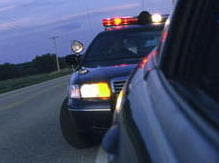.jpg)
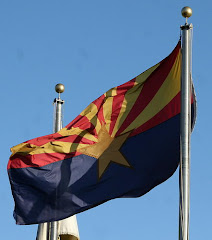.jpg)
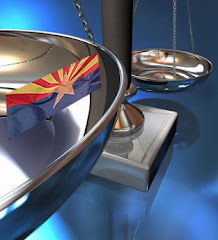.jpg)




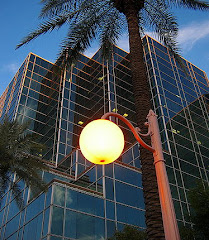.jpg)
.jpg)
.jpg)
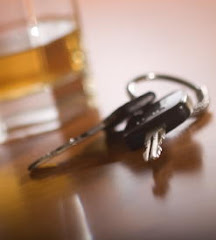.jpg)